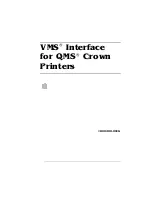
Event Types for Alarms
EPICenter Reference Guide
532
Ping Test Completed
Generated at the completion of a ping test when the
corresponding pingCtlTrapGeneration object is set to
testCompletion(4).
ExtremeWare 6.1.9
Not supported in
ExtremeXOS
Ping Test Failed
Generated when a ping test is determined to have failed when
the corresponding pingCtlTrapGeneration object is set to
testFailure(1). In this instance pingCtlTrapTestFailureFilter
should specify the number of probes in a test required to have
failed in order to consider the test as failed.
ExtremeWare 6.1.9
Not supported in
ExtremeXOS
PoE PSU Status
Changed
Extreme Networks proprietary trap. Indicates a change in the
PoE PSU for the slot.
Not supported in
ExtremeXOS
Port Diagnostics
Extreme Networks proprietary trap. Indicates the status of
Diagnostics for a port. The status indicates whether Diagnostics
for a particular port failed.
ExtremeWare 7.3
Not supported in
ExtremeXOS
Power Supply Failed
Extreme Networks proprietary trap. This trap indicates that one
or more sources of power have failed. Presumably a redundant
power-supply has taken over. This trap is sent repetitively every
30 seconds until all the power supplies are back to normal
condition.
All
Power Supply OK
Extreme Networks proprietary trap. This trap indicates that one
or more previously bad sources of power have come back to life
without causing the device to restart.
All
Processor State Change
Trap
Extreme Networks proprietary trap. This trap indicated a failed
processor on a module is detected.
Pse Port On/Off
Indicates a change in the power delivery status of the PSE port
(whether the port is delivering power or not. This notification
should be sent on every status change except in the searching
mode. At least 500 msec must elapse between notifications
emitted by the same object instance.
ExtremeXOS 11.1
Redundant Power
Supply Failed
Extreme Networks proprietary trap. This trap indicates that the
attached redundant power supply device is indicating an alarm
condition. This trap is sent repetitively every 30 seconds until
the redundant power supply is back to normal condition.
ExtremeWare All/
Not supported in
EXOS
Redundant Power
Supply OK
Extreme Networks proprietary trap. This trap indicates that the
attached redundant power supply device is no longer indicating
an alarm condition.
ExtremeWare All/
Not supported in
EXOS
SLB Unit Added
Extreme Networks proprietary trap. Indicates that the server
load balancer has activated a group of virtual servers that it
normally would not activate. This may be due to the failure of
another server load balancer.
ExtremeWare 6.1
Not supported in
EXOS
SLB Unit Removed
Extreme Networks proprietary trap. Indicates that the server
load balancer has deactivated a group of virtual servers that it
normally has active. This indicates that something is wrong in
the server load balancer; for example, its ping check may be
failing.
ExtremeWare 6.1
Not supported in
EXOS
STP New Root
Extreme Networks proprietary trap. Indicates that the sending
agent has become the new root of the Spanning Tree; the trap
is sent by a bridge soon after its election as the new root, e.g.,
upon expiration of the Topology Change Timer immediately
subsequent to its election.
ExtremeWare 6.2.2
ExtremeXOS 10.1
Table 58: SNMP Trap Events (continued)
Event
Definition
ExtremeWare/
ExtremeXOS
Version
Summary of Contents for EPICenter 6.0
Page 14: ...EPICenter Reference Guide 14 ...
Page 18: ...Preface EPICenter Reference Guide 18 ...
Page 19: ...1 EPICenter Basic Features ...
Page 20: ......
Page 24: ...EPICenter Overview EPICenter Reference Guide 24 ...
Page 44: ...Getting Started with EPICenter EPICenter Reference Guide 44 ...
Page 100: ...The Inventory Manager EPICenter Reference Guide 100 ...
Page 140: ...The EPICenter Alarm System EPICenter Reference Guide 140 ...
Page 172: ...Configuration Manager EPICenter Reference Guide 172 ...
Page 196: ...The Firmware Manager EPICenter Reference Guide 196 ...
Page 220: ...The Interactive Telnet Feature EPICenter Reference Guide 220 ...
Page 250: ...The Grouping Manager EPICenter Reference Guide 250 ...
Page 276: ...Real Time Statistics EPICenter Reference Guide 276 ...
Page 342: ...Using the VLAN Manager EPICenter Reference Guide 342 ...
Page 348: ...The ESRP Monitor EPICenter Reference Guide 348 ...
Page 446: ...EPICenter Reports EPICenter Reference Guide 446 ...
Page 447: ...2 Advanced Upgrade Features ...
Page 448: ......
Page 480: ...EAPS Protocol Monitoring and Verification EPICenter Reference Guide 480 ...
Page 508: ...Using the Policy Manager EPICenter Reference Guide 508 ...
Page 525: ...3 Appendices ...
Page 526: ......
Page 542: ...EPICenter Backup EPICenter Reference Guide 542 ...
Page 564: ...Voice over IP Manager EPICenter Reference Guide 564 ...
Page 580: ...EPICenter Reference Guide 580 ...
















































